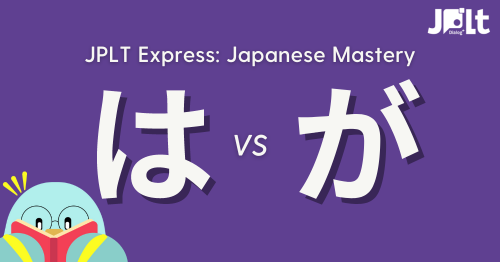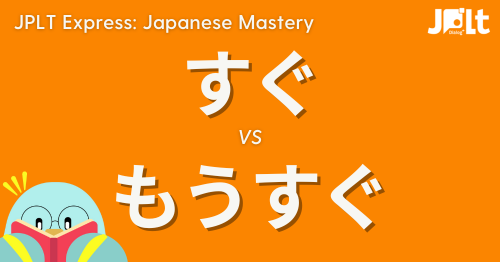Shinikui vs Shigatai: Understanding Their Subtle Differences
The Difference Between “Rikai Shinikui” and “Rikai Shigatai” “Don’t both ‘rikai shinikui’ (理解しにくい) and ‘rikai shigatai’ (理解しがたい) mean ‘difficult to understand’? Why should they be used differently?” “In which contexts is it...
Ichido vs. Ikkai: Nuances of “Once” in Japanese Explained
The Difference Between “Ichido” and “Ikkai” “If both ‘ichido’ (いちど) and ‘ikkai’ (いっかい) mean ‘once,’ why is it necessary to differentiate between them?” “In what contexts should ‘ichido’ and ‘ikkai’ be used...
“Wasuregachi” vs. “Wasuregimi”: Understanding Japanese Forgetfulness Nuances
The Difference Between “Wasuregachi” and “Wasuregimi” “Don’t both mean ‘forget’? Why do we need to distinguish between them?”“Isn’t ‘wasuregachi’ almost the same as ‘wasureppoi’?”“Can you tell me when I should use...
“Chiisai” vs. “Chiisana”: Learning Japanese Word Nuances
The Difference Between “Chiisai” 小さい and “Chiisana” 小さな “Don’t both mean ‘small’? Why do we need to differentiate between them?” “I understand ‘talking in a small voice,’ but can ‘chiisana’ be used...
Tanoshimi vs Tanoshisa: Understanding their Differences
The Difference Between “楽しみ” (tanoshimi) and “楽しさ” (tanoshisa) “Which should I use, ‘楽しみ’ (tanoshimi) or ‘楽しさ’ (tanoshisa)?” “What’s the difference between ‘I’m looking forward to the weekend trip’ and ‘Traveling is fun’?”...
Understanding the Difference Between “ii desu” and “daijōbu desu
Understanding the Difference Between “いいです” (ii desu) and “大丈夫です” (daijōbu desu) in Japanese Are you confused about when to use “いいです” (ii desu) and “大丈夫です” (daijōbu desu)? While both phrases can be...
Understanding the Subtle Differences Between ‘Iku nara’ and ‘Iku no nara’
The Difference Between “行くなら” (Iku nara) and “行くのなら” (Iku no nara) “Should I use ‘行くなら’ (Iku nara) or ‘行くのなら’ (Iku no nara)? Aren’t they the same in meaning?” “What’s the difference...
Learning Japanese Requests: When to Use ‘Onegaishimasu’ vs. ‘Kudasai’
Which is Correct: ’Ocha, Onegaishimasu’ vs ‘Ocha, Kudasai’ “I can’t really tell the difference between ‘お茶お願いします’ (Ocha, onegaishimasu) and ‘お茶ください’ (Ocha, kudasai)…””I was once told that using ‘お茶お願いします’ (Ocha, onegaishimasu) in a...
The Difference Between “1年おき” and “1年ごと”
The Difference Between “1年おき” and “1年ごと” “Should I use ‘1年おき’ or ‘1年ごと’? Aren’t they the same in meaning?””What’s the difference between ‘毎年健康診断を受ける’ and ‘毎年健康診断を1年おきに受ける’? Aren’t both saying that you get a checkup...
he Difference Between “大人向け” and “大人向き”
The Difference Between “大人向け” (otonamuke) and “大人向き” (otonamuki) “Should I use ‘大人向け’ or ‘大人向き’? Aren’t they the same in meaning?”“Is ‘子供向けのゲームも大人向きなものがある’ natural Japanese?”“Is ‘この映画は大人向けですが、内容は面白いので子どもでも楽しめます’ correct Japanese?” The expressions “大人向け” (otonamuke) and “大人向き”...
The Difference Between “ほど” and “くらい/ぐらい”
The Difference Between “ほど” and “くらい/ぐらい” “Should I use ‘ほど’ or ‘くらい/ぐらい’? Aren’t they all the same in meaning?” “What’s the difference between ‘この本は300ページほどある’ and ‘この本は300ページくらいある’?” “In business situations, which is correct:...
Understanding “そう思います” [Sou Omoimasu] vs. “そうだと思います”[Sou Da to Omoimasu]
What is the difference between “そう思います” (sou omoimasu) and “そうだと思います” (sou da to omoimasu)? “Isn’t ‘そう思います’ (I think so) and ‘そうだと思います’ (I think so) the same?” “In a certain situation, when I...
Present vs. Past “Thank You”: When to Use Each Form
What is the difference between “ありがとうございます” (arigatou gozaimasu) and “ありがとうございました” (arigatou gozaimashita)? “When I say ‘ありがとうございます’ (Thank you) and ‘ありがとうございました’ (Thank you very much), they seem the same to me…””In a certain...
Learning Japanese Particles: ‘は’ vs. ‘が’ Explained
[Japanese Learning] I don’t understand how to use “は” (wa) and “が” (ga). “When I say, ‘彼は先生です。’ (He is a teacher) and ‘彼が先生です。’ (He is a teacher), they seem the same to...
“How to Use ‘すぐ’ [sugu] and ‘もうすぐ’ [mou sugu] Correctly in Japanese”
[Japanese Learning] What’s the difference between “すぐ” (sugu) and “もうすぐ” (mou sugu)? “I thought ‘もうすぐだね~’ (It’s almost time) and ‘すぐだね~’ (It’s soon) mean the same thing…””When I said ‘誕生日すぐだね’ (Your birthday is...
Correct Usage of ‘多い’ [ooi] in Japanese: Avoid Common Mistakes
[Japanese Learning] Why can’t you say “多い人” (a lot of people) or “多い雨” (a lot of rain)? “When I said ‘多い人だね~’ (a lot of people), I was told that’s not how you...
Difference Between “jōzu” and “tokui”: How to Explain Them
How are “上手” (jōzu) and “得意” (tokui) different? How should I explain it? “上手” (jōzu) and “得意” (tokui) sound similar, but there is a significant difference. If I ask, “Are ‘上手’ and...
Distinguishing ‘Yatto,’ ‘Tsui ni,’ and ‘Tōtō’: Nuance Explained
[Japanese Language Learning]The Difference Between “やっと,” “ついに,” and “とうとう” “Isn’t ‘yatto,’ ‘tsuini,’ and ‘tōtō’ all the same?””What’s the difference between ‘yatto’ and ‘tsuini’? Don’t both express happiness?””Is ‘tōtō’ often used in a...
Distinguishing ‘Sameru’ vs ‘Hieru’: Differences Explained
[Japanese Language Learning] The Difference Between “冷める” [Sameru] and “冷える” [Hieru] “Isn’t ‘hieru’ and ‘sameru’ the same?””I was told that using ‘hieru’ in a certain situation was incorrect…””Can you explain clearly what...
Kunai vs Naide: Key Differences in Japanese Expressions
[Japanese Language Learning] What is the Nuance Difference Between “入ってほしくない” [Haitte Hoshikunai] and “入らないでほしい”? [Hairanaide Hoshii] “I don’t want you to enter there. I want you not to enter there. They seem...









